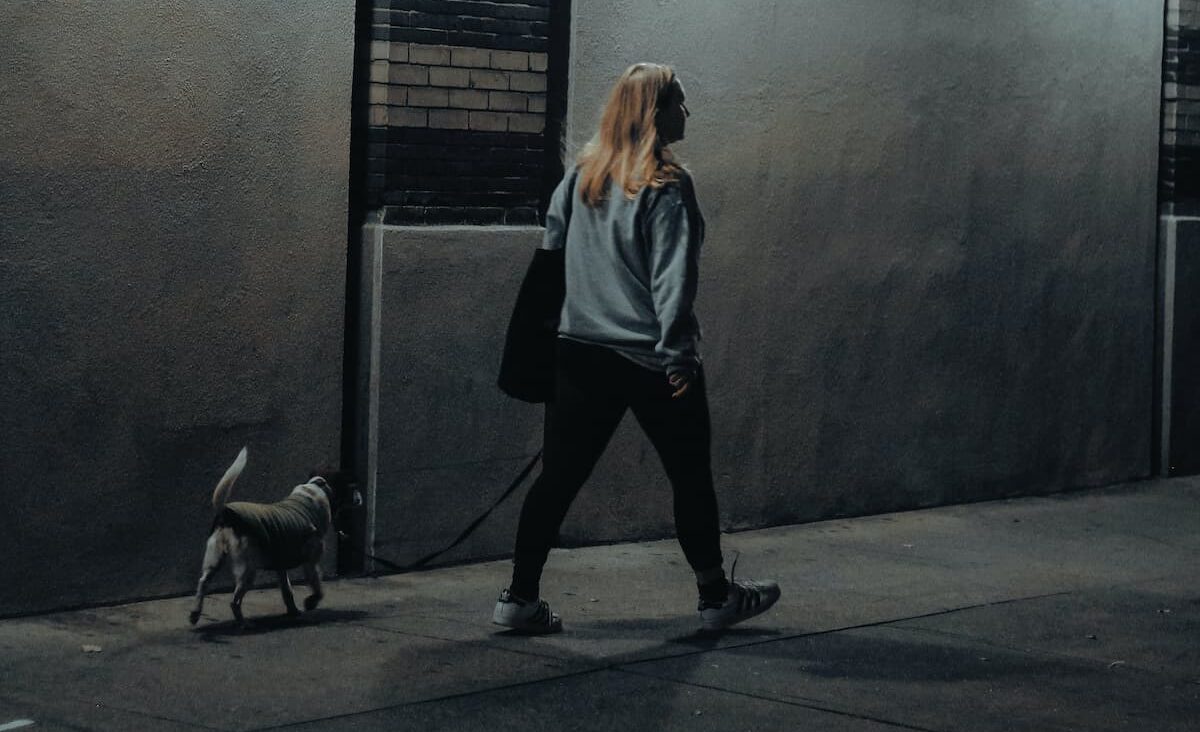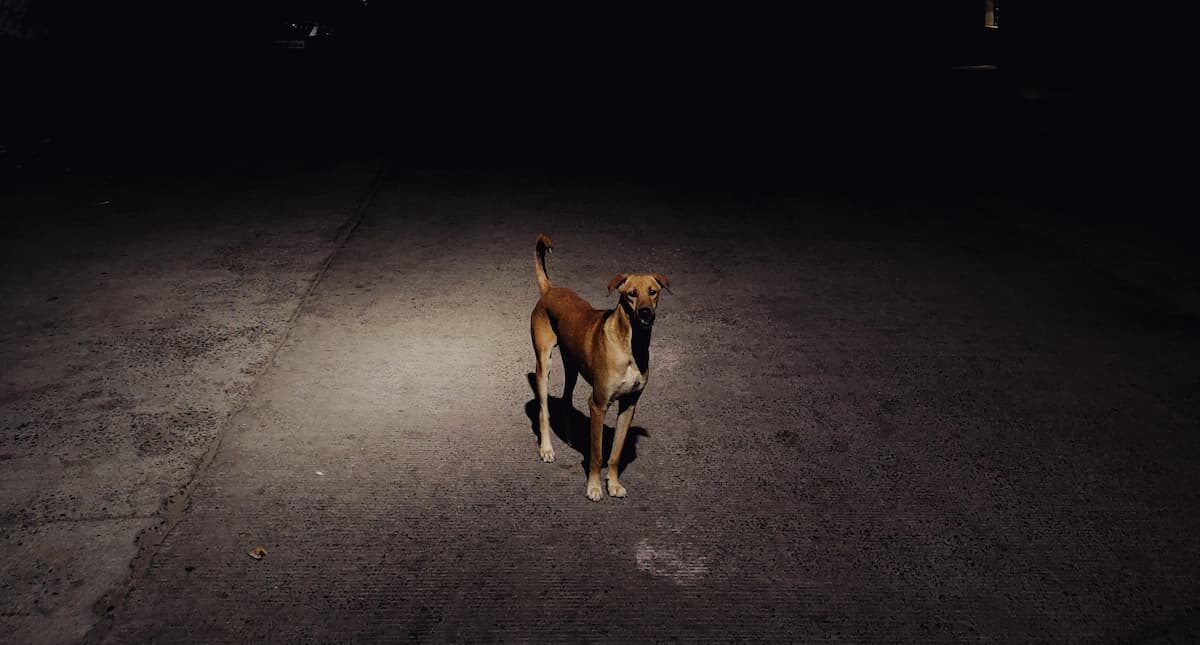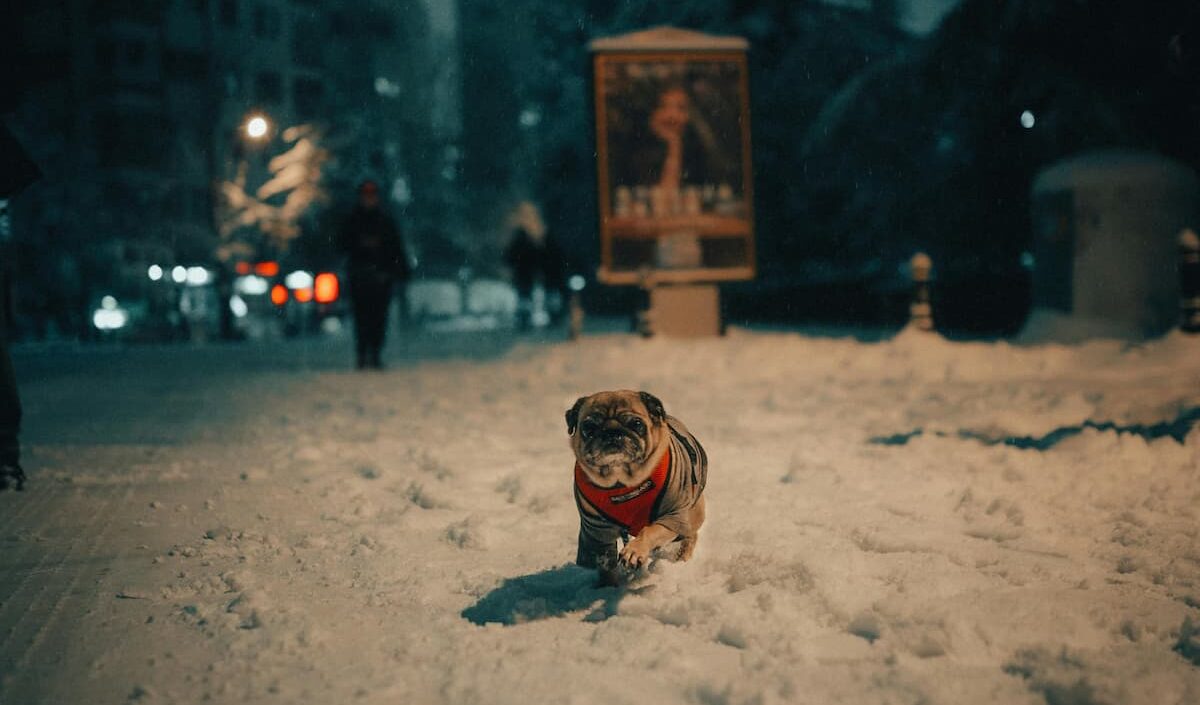Have you ever wondered why, just as you’re settling down for a peaceful slumber, your beloved furry companion suddenly transforms into a whirlwind of energy and chaos?
The mystery of why dogs go absolutely bonkers at night is one that countless pet owners have encountered.
This article will shed some light on this behavioral phenomenon.
Understanding the Mysterious Phenomenon of Dogs Going Crazy at Night
The mysterious phenomenon of dogs going crazy at night has puzzled pet owners for years.
And while it may seem like an inexplicable behavior, there are actually several factors at play that contribute to our furry friends’ nightly escapades.
One possible reason for this nocturnal energy surge is a dog’s natural instinct as a predator.
Dogs are crepuscular animals, meaning they are most active during dawn and dusk.
Although our domesticated buddies may have adapted to our own sleep schedules, their internal clock still retains some of their primal behavior.
That’s why you may notice your dog becoming more energetic and playful as darkness falls, as their instincts kick in.
It’s important to remember that dogs have highly sensitive senses, including sharper hearing and smell, which could be enhanced at night, making them more alert and prone to engaging in erratic behavior.
Another contributing factor could be the lack of mental stimulation or physical activity during the day.
Dogs are intelligent creatures that require mental and physical stimulation to thrive.
If your dog spends most of their day cooped up indoors or doesn’t receive enough exercise or playtime, they may become restless and bored by nighttime.
This surplus energy, combined with a quieter and calmer environment, can lead to bouts of craziness.
Additionally, dogs are naturally curious creatures and during the daytime, their surroundings are often predictable and familiar.
However, when night falls, the environment seems more mysterious and unpredictable.
Shadows dance, sounds amplify, and scents intensify, giving dogs a thrilling sensory experience that demands exploration.
An Insight Into Your Dog’s Night Vision
Your dog’s amazing night vision could also play a significant role in its nocturnal activities.
Unlike humans, who rely heavily on color vision, dogs have adapted to see better in low-light conditions.
Their eyes contain a higher percentage of rod cells, which are specialized photoreceptor cells responsible for detecting light.
These rod cells are particularly sensitive to dim light, allowing dogs to see better in the dark than we ever could.
So, when the sun sets and the world around them dims, their inner nocturnal instincts kick in.
Think about it like this: while we humans can barely make out shapes and movement in the dark, our furry friends can see a whole world of details.
Their night vision is optimized for detecting motion, meaning they can spot even the tiniest shifts in their surroundings.
This heightened ability to perceive movement is an essential adaptation that has been passed down through generations of dogs, enabling them to hunt and navigate at night.
Helpful Tips to Calm Your Dog’s Nighttime Hyperactivity
Now that you know why dogs go crazy at night, here are some helpful tips to manage the midnight madness and ensure both you and your pup get a good night’s sleep!
1. Keep them entertained during the day: Dogs are full of energy, and if they haven’t had enough exercise or mental stimulation throughout the day, they’re more likely to experience bouts of hyperactivity at night.
Make sure your dog gets enough playtime, walks, and interactive toys during daylight hours to tire them out.
Remember, a tired dog is a calm dog!
2. Create a soothing bedtime routine: Just like humans, dogs thrive on routine and predictability.
Establish a calming routine before bedtime that signals to your dog that it’s time to wind down.
This could include activities like a relaxing massage, a gentle brush, or even some quiet bonding time.
Additionally, incorporating a few minutes of training exercises can help redirect their excess energy and provide mental stimulation.
3. Provide a comfortable sleeping environment: Dogs are creatures of comfort, and if they’re feeling restless or uncomfortable at night, they’re more likely to exhibit hyperactive behavior.
Ensure their sleeping area is cozy, with a soft bed or blanket they can snuggle up in.
You can also consider using aromatherapy or calming sprays to create a serene atmosphere in their sleeping space.
Additionally, using a white noise machine or playing gentle classical music can help drown out any noises that might trigger their restlessness.
Remember, managing your dog’s nighttime hyperactivity requires patience and consistency.
By implementing these tips and understanding the reasons behind their midnight madness, you’ll be on your way to creating a peaceful and restful environment for both you and your beloved fur baby.
So, say goodbye to those sleepless nights and hello to sweet dreams for everyone!
FAQ
Q: So, why exactly do dogs seem to go bonkers once darkness falls?
A: Well, it turns out that there are a few plausible explanations for this behavior.
One common reason is simply pent-up energy.
Dogs are naturally active animals, and if they haven’t had enough exercise during the day, they might take this opportunity to burn off some steam.
It’s like a furry version of a late-night sprint through the park.
Q: Is there any particular breed or age group of dogs that are more prone to this nighttime craziness?
A: It’s not exclusive to a specific breed or age group, my friend.
Dogs of all shapes, sizes, and ages can exhibit this behavior.
However, younger dogs and certain energetic breeds like Border Collies and Labrador Retrievers might be more inclined to go bananas at night.
They have an inherent need for mental and physical stimulation, which makes them more likely to engage in late-night shenanigans.
Q: Can this behavior be attributed to a lack of training or behavioral issues?
A: While it’s true that inconsistent training or unresolved behavioral issues can contribute to dogs going crazy at night, that’s not always the case.
Sometimes, even a perfectly well-behaved pup can let their inner party animal loose after hours.
It’s more about their natural instincts and energy levels rather than disobedience or misbehavior.
Q: Are there any other factors that can contribute to their evening enthusiasm?
A: Absolutely!
Dogs are incredibly perceptive creatures, and there can be external factors at play.
For instance, dogs have exceptional hearing, so a distant sound, such as another animal or a neighbor’s activity, might pique their interest and trigger their playful demeanor.
Additionally, changes in our own behavior at night, such as increased relaxation or excitement, can also influence their behavior.
Q: Is there anything we can do to calm our furry friends down at night?
A: Of course!
If your furry buddy regularly transforms into a nighttime party animal, there are a few strategies you can try.
Ensuring they have plenty of exercise during the day is essential.
Regular walks, playtime, and mental stimulation can help tire them out and reduce their evening energy levels.
Creating a cozy and calming environment for them can also be helpful.
A comfortable sleeping area, soothing background noise, and a consistent routine can all contribute to a peaceful night for both of you.
Q: Is it necessary to consult a veterinarian if this behavior becomes excessive or worrisome?
A: If your four-legged pal’s nighttime craziness becomes persistent, excessive, or causes concern, it might be worth seeking guidance from a veterinarian.
They can help identify any underlying health issues, provide behavioral advice, or suggest additional methods to help manage this behavior.
Q: In the end, should we be worried if our dogs go crazy at night?
A: In most cases, there’s no need to panic.
Dogs going wild at night is usually nothing more than their natural instincts shining through.
However, if you’re finding it challenging to manage their energy levels or if there’s an abrupt change in their behavior, it’s best to consult a professional for guidance.
Just remember, our furry friends bring a lot of joy and amusement to our lives, even during their midnight madness!
A Final Retrospective
From overactive imaginations to bursts of pent-up energy, dogs sure know how to keep us on our toes, especially when darkness descends.
Remember, our canines are natural explorers, always on the lookout for adventure and excitement.
When the night comes, their senses come alive, detecting the slightest movement or sound that we humans may not even notice.
It’s like they have a superpower that kicks in as soon as the moon takes its place in the sky.
Not to mention, darkness can amplify those playful tendencies that lurk within our dogs.
With reduced visibility, their imaginations run wild, turning everyday objects into thrilling toys that must be chased, pounced on, or even demolished.
It’s as if they’ve tapped into an alternate universe of fun and games that only exists under the veil of night.
But let’s not forget about their biological clocks either.
As descendants of wolves, dogs have retained the instinctual urge to be active during dawn and dusk when their wild ancestors would hunt.
So, when we’re cozying up in our beds, our canine companions are itching to move around, stretch their limbs, and release all that built-up energy from a day of napping.
Although it might seem chaotic at times, it’s crucial for our four-legged pals to have an outlet for their nocturnal energy and excitement.
Providing them with regular exercise and mental stimulation throughout the day will tire them out so they can hit the hay more peacefully.
A tired dog is a happy dog, as they say!
So next time you find yourself wondering why your beloved Fido turns into a whirlwind of activity as soon as nightfall approaches, you’ll have a better understanding of what’s going on in their canine brain.
Embrace their natural instincts, have some fun, and don’t be afraid to join in on the madness.
After all, life with dogs is never boring, especially when the sun sets and the night-time adventures begin!












